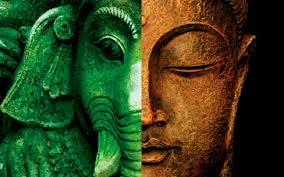Karma is a fundamental concept in various Eastern philosophies and religions, including Hinduism, Buddhism, and Jainism. It refers to the belief that our actions, thoughts, and intentions have consequences that shape our present and future experiences. Karma is often understood as a law of cause and effect, where our actions create an energetic imprint that influences the course of our lives. Here, we explore how karma affects our lives.

Moral Accountability: Karma establishes the principle of moral accountability. It suggests that every action, whether positive or negative, has repercussions. Good actions generate positive karma, leading to favourable outcomes and experiences, while negative actions create negative karma, resulting in adverse consequences. Thus, karma reminds us of the importance of ethical conduct and responsible decision-making.
Self-Transformation: Karma serves as a powerful tool for personal growth and self-transformation. It encourages individuals to reflect on their actions and the intentions behind them. By recognizing the karmic consequences of their choices, individuals can learn from their experiences, make amends, and strive to act more consciously and compassionately. This process of self-reflection and growth can lead to spiritual evolution and a deeper understanding of oneself and others.
Understanding Life Circumstances: Karma helps us make sense of the circumstances and events that unfold in our lives. It suggests that our present circumstances are not random but is a result of past actions and choices, either from this lifetime or previous ones (according to certain beliefs). Positive or negative experiences can be seen as opportunities for growth, learning, and balancing karmic debts. By acknowledging karma, we can approach challenges with a sense of responsibility, seeking lessons and personal development in difficult situations.
Law of Attraction: The concept of karma is often related to the law of attraction, which states that like attracts like. The energy we emit through our thoughts, emotions, and actions can attract corresponding energies and experiences into our lives. Positive thoughts, intentions, and actions can attract positive outcomes, while negative energies can draw unfavourable circumstances. Karma encourages individuals to cultivate positive qualities, such as kindness, generosity, and empathy, to create a more positive and fulfilling life.
Interconnectedness: Karma highlights the interconnected nature of all beings and actions. It suggests that every action has a ripple effect, influencing not only our own lives but also the lives of others. Our actions can create a chain of cause and effect that extends beyond our immediate awareness. By recognizing this interdependence, we can cultivate a sense of responsibility towards our actions and their potential impact on others, fostering a more compassionate and harmonious society.
Release from Suffering: Karma offers the possibility of liberation from the cycle of suffering. It suggests that by understanding and purifying our karma, we can break free from negative patterns and attachments that cause suffering. Through self-awareness, mindfulness, and compassionate action, individuals can reduce the accumulation of negative karma and create conditions for spiritual growth and ultimate liberation (as believed in certain spiritual traditions).